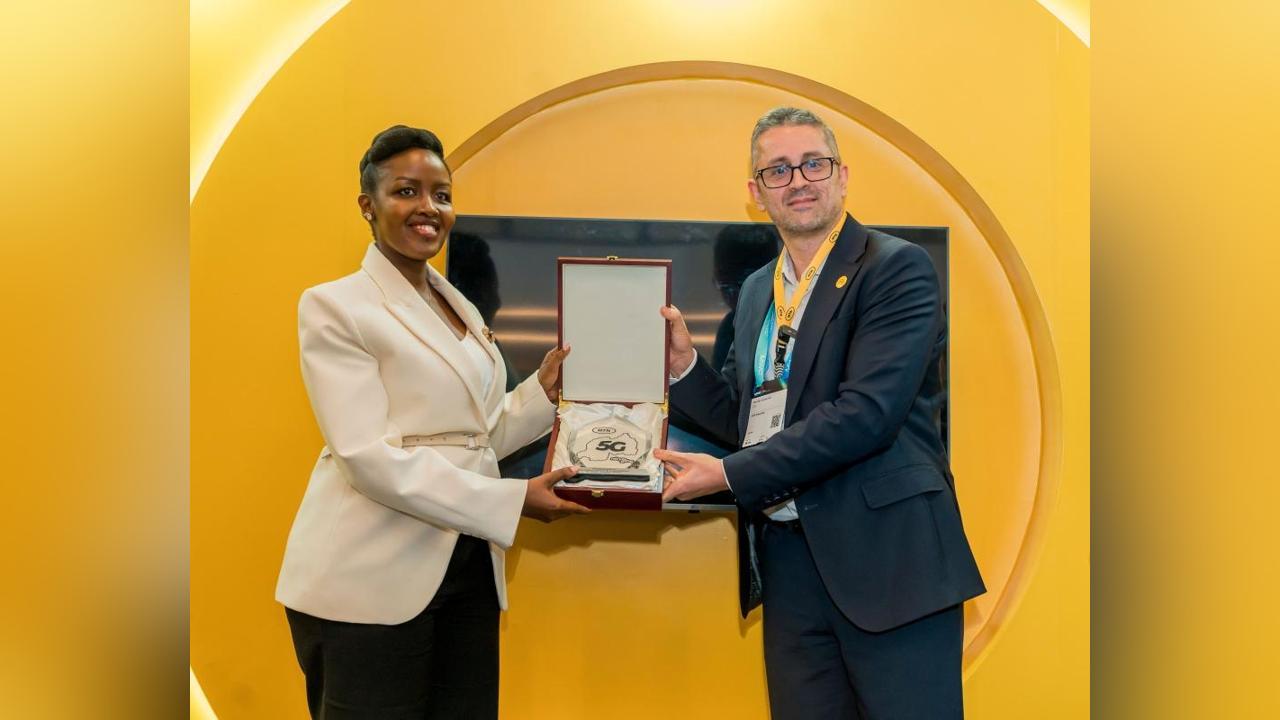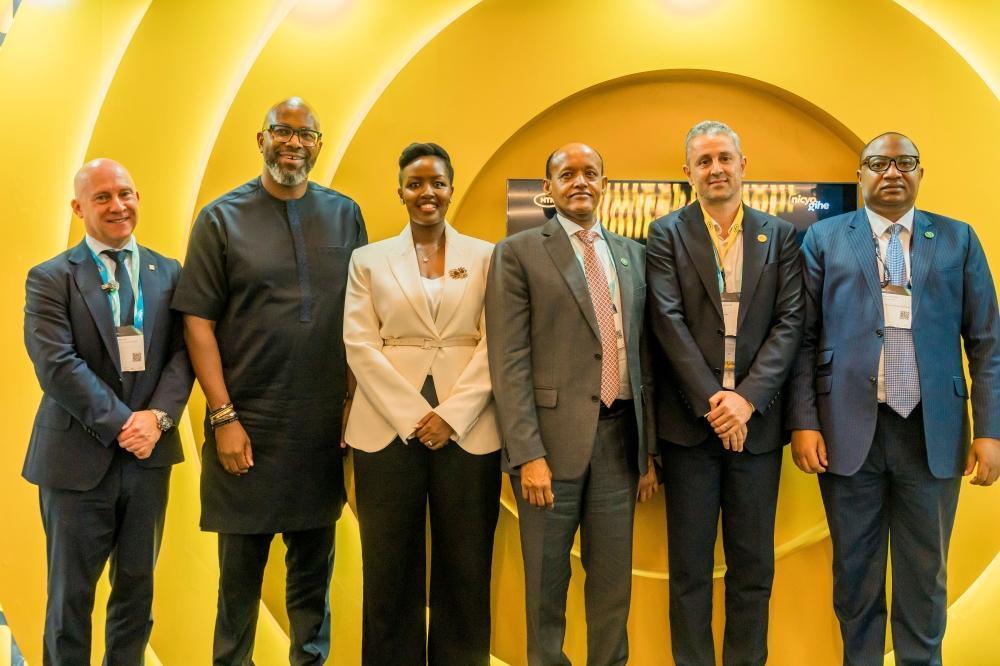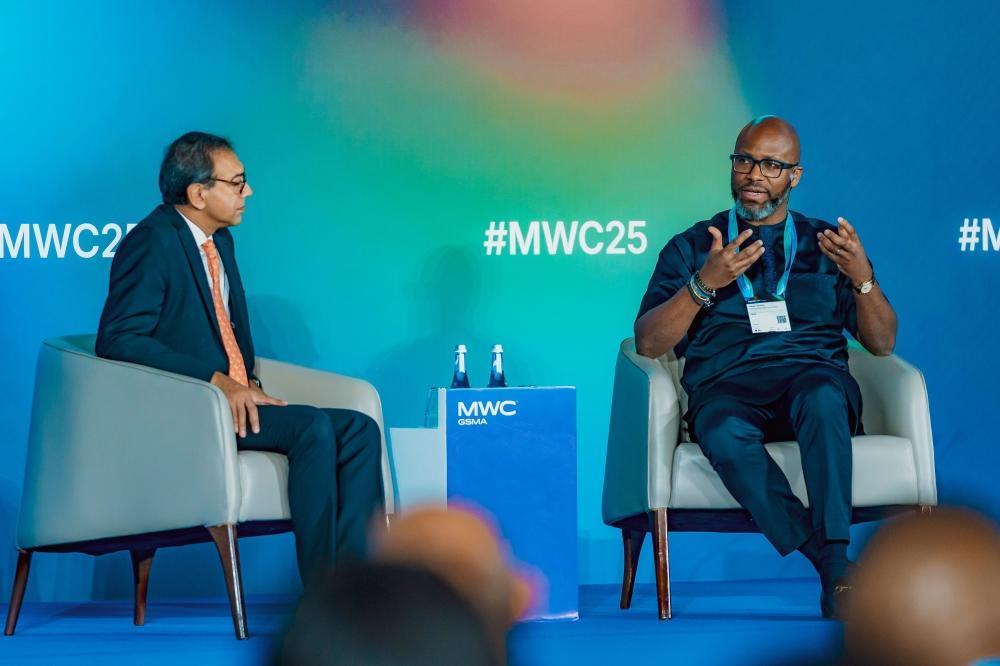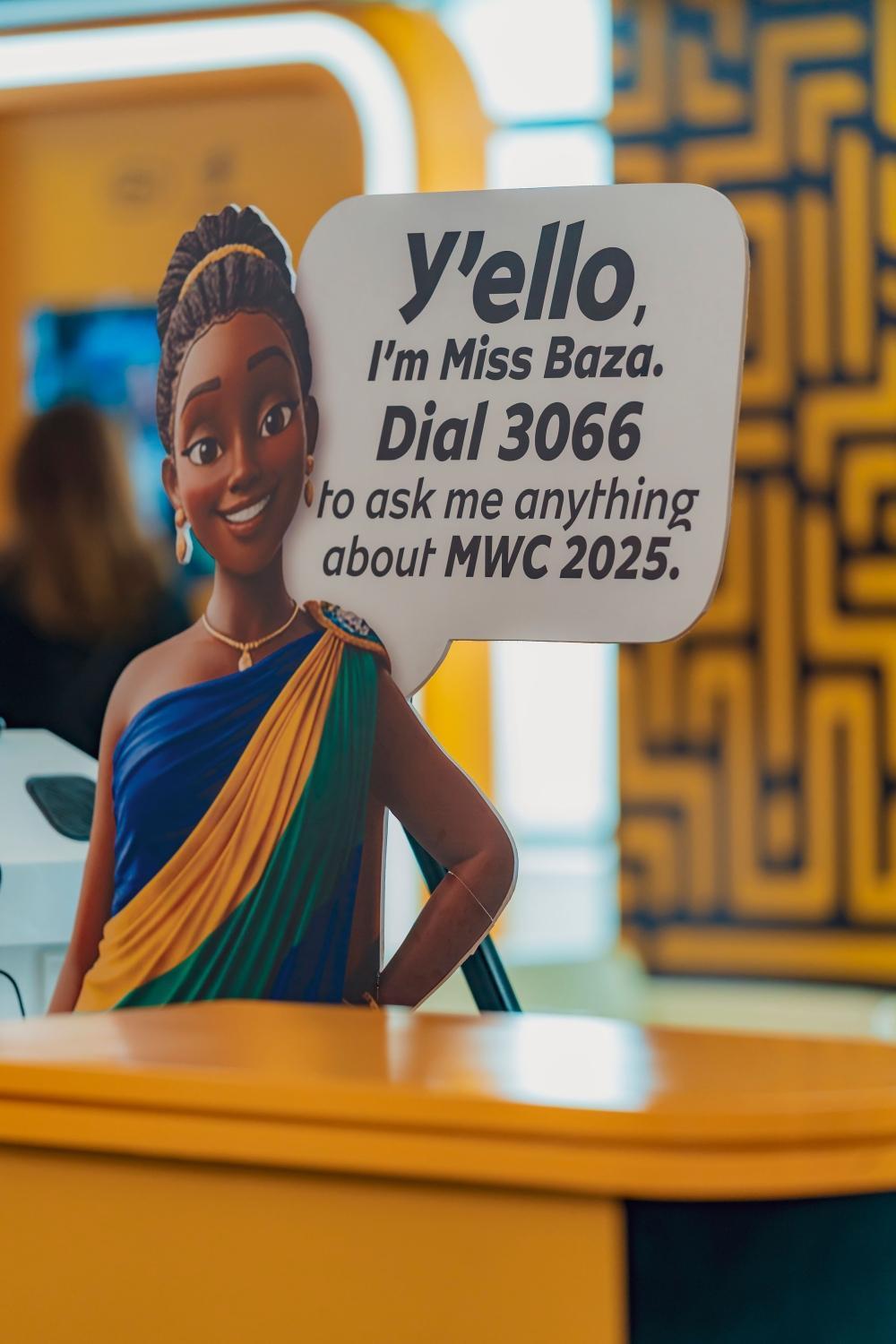Africa-Press – Rwanda. The Kigali Convention Centre came alive once again last week, becoming a meeting point for collaboration and innovation as Rwanda hosted Mobile World Congress Kigali 2025(MWC), Africa’s biggest technology gathering.
For three days, from October 21, to 23, more than 10,000 people filled its halls. Government leaders, industry experts, developers, and innovators came together to explore how Africa will shape its digital future.
And at the heart of it all stood MTN. As a founding sponsor of MWC 2025, MTN played an active role in shaping the dialogue. From the main stages to the exhibition halls and every conversation in between, one message resonated loud and clear: Africa’s telecommunications leaders are evolving into technology powerhouses.
MTN proudly led this transformation narrative, showcasing how African innovation is redefining what it means to be a Techco, driving digital progress, empowering communities, and building the future of connectivity across the continent.
The world is changing fast, and so are we.
Telco to Techco: The new way
During the opening session, MTN Group President and CEO Ralph Mupita joined industry peers to discuss Africa’s digital progress and what still needs to be done to close the usage gap.
He noted that network coverage has expanded significantly in recent years, reflecting major investment across the continent. Yet, millions of Africans remain offline, showing that access alone does not guarantee participation in the digital economy. He explained that the next phase of progress depends on affordability, relevant local content, and digital skills.
Within MTN’s footprint, the same reality holds true. Of the Group’s 300 million subscribers across the continent, only about 135 million are connected to 4G. This, he said, highlights the scale of the opportunity and the responsibility to ensure that every African can benefit from digital access.
Delegates pose for a group photo in front of the MTN stand at the Mobile World Congress Kigali 2025 (MWC).
Ralph called for a regional push to bring smartphone prices down to between 20 and 30 dollars, a level he believes will trigger a tipping point for digital adoption.
“You cannot just have content that is generic,” he said. “People need to see themselves and their language in the digital space.”
He added that lasting progress requires governments, regulators, and industry players to rethink old frameworks built for the voice era. Regulation, he said, must now serve the vision of a truly digital Africa, one that encourages investment, supports innovation, and rewards sustainability.
These priorities sit at the heart of MTN’s Ambition 2025 strategy. Across 14 markets, the Group is reshaping from a network provider into a technology company. We are building digital platforms that power fintech, cloud computing, AI, and enterprise services for everyday use.
In Rwanda, this transformation is already visible, from expanding 4G access to investments in fintech and AI, MTN Rwanda is building tools that enable progress and opportunity.
NST 2: Rwanda’s digital blueprint
Rwanda’s National Strategy for Transformation 2 (NST 2) is the roadmap guiding the country’s journey toward becoming a digitally empowered and knowledge-based society by 2029.
It places technology and innovation at the heart of national development, with clear priorities around inclusive growth, e-government expansion, digital literacy, and job creation within the technology sector.
NST 2 aims to build a digital foundation that supports every aspect of daily life. One of its key ambitions is to expand e-Government services through platforms like IremboGov and GovStack, making access to public services faster, simpler, and more transparent. At the same time, there is a strong national push to improve digital literacy and skills across the country. Training programs are equipping young people and people with disabilities with the knowledge and skills needed to use technology for work, business, and everyday activities.
The strategy also places strong emphasis on developing the next generation of innovators. Rwanda has set a target to train one million coders and create 500,000 digital jobs through initiatives like the National Robotics Program and new technology training centers. To sustain this momentum, the government is strengthening the ICT ecosystem through partnerships between the public and private sectors that encourage innovation and long-term resilience.
Enhancing digital infrastructure is another national priority, with continued investment in connectivity, data centers, and cybersecurity to ensure the country’s digital transformation remains secure, sustainable, and ready for the future.
In alignment with these national priorities, MTN Rwanda used MWC Kigali 2025 as an opportunity to showcase live solutions that bring this vision to life, including innovations in AI, robotics, and digital skills development.
Miss Baza: Rwanda’s new digital companion
A highlight of MWC Kigali 2025 was introducing Miss Baza, MTN Rwanda’s AI-powered digital assistant.
Miss Baza is more than a chatbot. She is a symbol of what happens when innovation meets inclusivity. Created to make tomorrow’s technology accessible to every Rwandan household, she bridges the gap between digital sophistication and everyday life. Whether helping citizens access government services, validate a land titles, discover local businesses, or explore Rwanda’s culture and tourism , Miss Baza will be available around the clock to guide them.
During his remarks, MTN Rwanda CEO Monzer Ali placed Miss Baza within a broader African AI story. He spoke about both possibility and urgency: possibility in how AI can transform how people live, learn, and grow, and urgency because Africa, despite being home to 18 percent of the world’s population, holds less than one percent of the global data centre capacity and less than 0.1 percent of online content is in African languages.
He outlined three principles guiding MTN’s AI work: AI for telco, telco for AI, and responsible AI. “As an African company for Africa, we are committed to ethical design, fairness, and transparency,” he said. “ It’s about creating AI for Africa, by Africans, in African languages.”
He described Miss Baza as a living example of AI for everyone, a digital assistant that reaches citizens with or without smartphones, with or without internet.
Through Miss Baza, MTN Rwanda demonstrates that technology can be personal, helpful, and proudly local. She represents the next step in making Rwanda’s digital transformation human-centered and inclusive.
5G, AI, and the future of connectivity
The success of MTN’s live demonstrations at MWC Kigali was made possible through our continued collaboration with Ericsson. Together, we showcased what the future of connectivity will look like in Rwanda.
Visitors experienced 5G powered augmented reality headsets that took them through virtual games. It was not a gimmick. It was a glimpse into what 5G can do for sectors such as entertainment, education, healthcare, logistics, and agriculture.
Patrick Johansson from Ericsson captured it well when he said, “Networks are not endpoints. They are starting points.” That is how we see it too. Our network is a launchpad for opportunity.
We also had the honour of recognising the Minister of ICT and Innovation, Hon. Paula Ingabire, and the Director General of RURA, Evariste Rugigana, with a token of appreciation for their vision, leadership, and continued support in driving Rwanda’s digital transformation. Their leadership has been instrumental in accelerating the 5G rollout across Rwanda, securing a smooth, collaborative, and future-ready deployment.
Skills, inclusion, and the human side of digital progress
Technology achieves little without people who can use it. Through the MTN Skills Academy, the company invests in digital education that equips young people for the modern workforce.
More than 228,000 learners across Africa have completed almost 100,000 modules in areas such as coding, data analytics, and digital marketing. Many are now creating applications, founding start-ups, and contributing to their local innovation ecosystems.
MTN Group President and CEO Ralph Mupita speaks during a panel discussion at the Mobile World Congress Kigali 2025 (MWC) held at the Kigali Convention Center.
At MWC Kigali, a live demonstration of the Digital Skills for Digital Jobs programme allowed participants to experience how the platform builds job-ready skills and supports inclusion.
Meanwhile, our Mobile Money (MoMo) platform continues to evolve beyond payments, becoming a super app that allows people to send money, shop online, pay bills, and access new financial tools from one simple platform. Ralph Mupita described this as the beginning of a new phase in Africa’s fintech journey, one where services move beyond peer-to-peer transactions into lending, insurance, remittances, and digital payments that make cashless societies safer and more efficient.
Miss Baza, MTN Rwanda’s AI-powered digital assistant, showcased during the Mobile World Congress Kigali 2025.
With 5G deployment planned for 2026, Rwanda is positioned to establish one of the most advanced digital networks in the region. The next step is ensuring that every citizen can access and benefit from it.
Rwanda’s moment on the global stage
Angela Wamola, Head of GSMA Africa, summed up the atmosphere, saying, “MWC Kigali is not just a conference. It is a platform for Africa to show its readiness for the digital era.”
That spirit defined the event. It was not just about ideas but about action. As host, Rwanda reaffirmed its commitment to fostering innovation and partnership across the continent, showing what is possible when a country combines vision, collaboration, and consistency.
As the curtains closed on MWC Kigali 2025, one message rang clear. MTN is not waiting for the future; we are building it through technology, partnerships, and people.
We are proud to be part of Rwanda’s digital story. From Miss Baza to 5G, from MoMo to digital skills, our work is proof that when innovation meets purpose, meaningful change happens.
The next chapter of our nation’s digital transformation will be even more exciting. Together with government, partners, and citizens, we continue to shape a connected, inclusive, and intelligent Rwanda.
Because for us, the future is not something to wait for. It is something to build every day.
For More News And Analysis About Rwanda Follow Africa-Press









